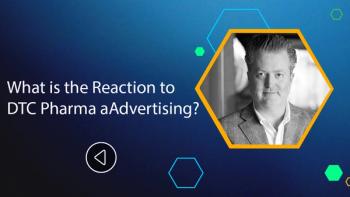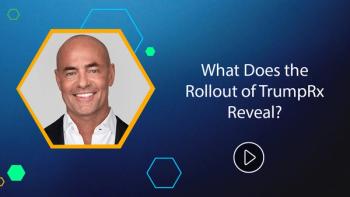
Telehealth & Its Role in Providing Access to Weight Loss Drugs
In this part of their Pharmaceutical Executive video interview, UpScriptHealth's Peter Ax, Founder and CEO, and George Jones, Chief Operations Officer, share their predictions for the future of telehealth and its role in providing access to essential medications like weight loss drugs
What are your predictions for the future of telehealth and its role in providing access to essential medications like weight loss drugs?
Peter Ax: Look how telehealth is a modality, right? It's just a form of delivery. What you're really seeing is the digital experience. You're seeing a new channel of distribution. I like to refer to it as a modernization of healthcare. If you think about the model today of healthcare, it's somewhat broken. You wait weeks to get into a clinician's office. The clinician may or may not be trained on your actual disease state and all the possible therapies out that are available. For example, in the migraine category alone, there were probably eight to 10 new drugs in the last few years, so it's very difficult for clinicians to be up to speed on all these drugs. And then you provide a prescription to the patient, or you send it to a pharmacy, and they patient then has to go wait online at a pharmacy and have a probably a pretty negative experience there, and the pharmacy may or may not have the product in stock, or they may or may not provide for good health care coverage and inform the patient in time to make a decision around health care coverage. All this is eliminated through the digital channel, right? We've got: patient comes online, they see a telemedicine doctor, they receive a prescription. That prescription is sent somewhere, that prescription may be delivered or sent to their home. They don't even have to go pick it up, but if they want to go pick it up, they'll know what their insurance benefits are in advance. It's a transparent, accessible, comfortable system to deal in. So, we really have, in a way, democratized healthcare and really modernized it.
George Jones: I think about kind of the time it takes from a patient making a decision about their health and wanting to make a change in a primary care world. You know, it could be, it's, it's likely at least a week, probably two to three weeks in a specialty world, it's probably 12 to 16 weeks for a patient to actually get the care that they're seeking, unless it's an emergence situation, obviously, with UpScript, and I'll use our contrary our weight loss platform, most patients are in front of a clinician getting care within a day. And that's almost on the long shot we have, you know, if a patient does get, you know, is appropriate for care with contrary, I think about 40 to 50% of those patients actually have products in the mail to them within a day. So we really speed time to therapy for a wide range of products, including products to help patients with their weight.
Newsletter
Lead with insight with the Pharmaceutical Executive newsletter, featuring strategic analysis, leadership trends, and market intelligence for biopharma decision-makers.




